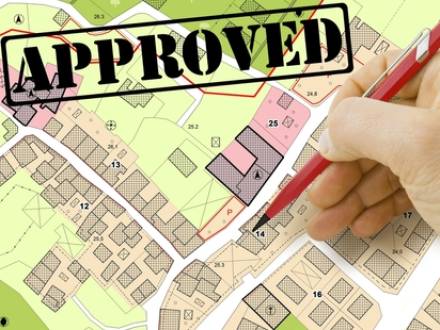Public Act 25-164: Commercial to Residential Conversions in CT
Posted on October 30, 2025 in Real Estate
 Significant new commercial real estate regulations in Connecticut focus on distressed properties, conversions from commercial to residential use, and protections related to certain lending practices. Connecticut Public Act No. 25-164 establishes a framework for the conversion of commercial real property into residential use, effective October 1, 2025.
Significant new commercial real estate regulations in Connecticut focus on distressed properties, conversions from commercial to residential use, and protections related to certain lending practices. Connecticut Public Act No. 25-164 establishes a framework for the conversion of commercial real property into residential use, effective October 1, 2025.
The bill defines key terms such as "commercial building," "industrial building," and "residential building" and allows for the conversion of commercial buildings into residential developments, subject to a summary review process. The process requires the building owner to certify that the property has been vacant or had an average occupancy rate of less than 50 percent over the previous year.
Connecticut has long struggled with underutilized commercial buildings, including empty offices, old hotels, and retail spaces, while housing shortages persist. The passage of Public Act 25-164 is meant to change all those things; however, developers, land-use attorneys, property owners, and local governments must understand the eligibility, process, and entitlements under this law. Speaking to an experienced Greenwich, CT real estate lawyer can help ensure you have a thorough understanding of the process.
What is the Rationale for Public Act 25-164?
The extreme level of housing demand, coupled with vacant commercial properties, prompted the legislature to implement Public Act 25-164. The Act allows municipalities with zoning under CGS Section 8-2 to enact regulations permitting conversion or partial conversion of commercial buildings into residential developments. Any commercial building used for hotels, retail, or office space is included; however, industrial buildings, warehouses, factories, and storage units are excluded. Residential developments are defined as structures with at least one dwelling unit.
What Are the Key Provisions and Eligibility of the Act?
No public hearing is required under the Act, and no variance, special permit, or special exception is required, other than a site-plan conformity check and application. Municipalities must establish an application and review process, and the Planning and Zoning Commission must decide within 65 days of receipt of the application. Municipalities cannot condition approval of a conversion on the correction of a nonconforming use, structure, or lot.
The Act further prohibits municipalities from reevaluating a converted property for at least three years after a certificate of occupancy is received. Municipalities that adopt the regulations may be eligible for priority consideration under a "greyfield revitalization program" offered by the Connecticut Department of Economic and Community Development.
How Does This Act Benefit Neighborhoods?
For developers and property owners, the process of converting an empty commercial property to a residential property is faster and more streamlined under the Act. Neighborhoods will see an uplift in deserted commercial properties and improved neighborhood vitality. By streamlining the approval process and offering financial incentives, the Act encourages the revitalization of older commercial areas, adds needed housing, and increases foot traffic, supporting the overall growth of the neighborhood.
What is the Process for Implementing the Act to Change Commercial Property Into Residential Property?
Property must be assessed to confirm a building is eligible, and then it must be verified that the municipality has adopted the required regulations under the Act. Building code analysis, fire and life safety, ADA compliance, utilities, and environmental hazards must be investigated. The application is then prepared, and a site plan is submitted to the Planning and Zoning Commission or building official, along with any required checklists. There is a 65-day decision window after the submission of all required documents. A certificate of occupancy will be issued, and tax credits and local incentives should be explored.
Contact a Greenwich, CT Real Estate Lawyer
If you are considering converting a commercial property into residential units, having an experienced Connecticut commercial real estate attorney from Mandelbaum Barrett PC who understands how zoning, building codes, tax issues, and legalities intertwine can be an invaluable resource.
Our attorneys are actively involved in charitable organizations and have served in many positions, including seats in the U.S. Congress and Senate, Probate Judge, First Selectman of the Town of Greenwich, and President of the Greenwich, Fairfield County Regional, and Connecticut Bar Association. Call 203-661-6000 to schedule your free consultation.


 Significant new
Significant new






